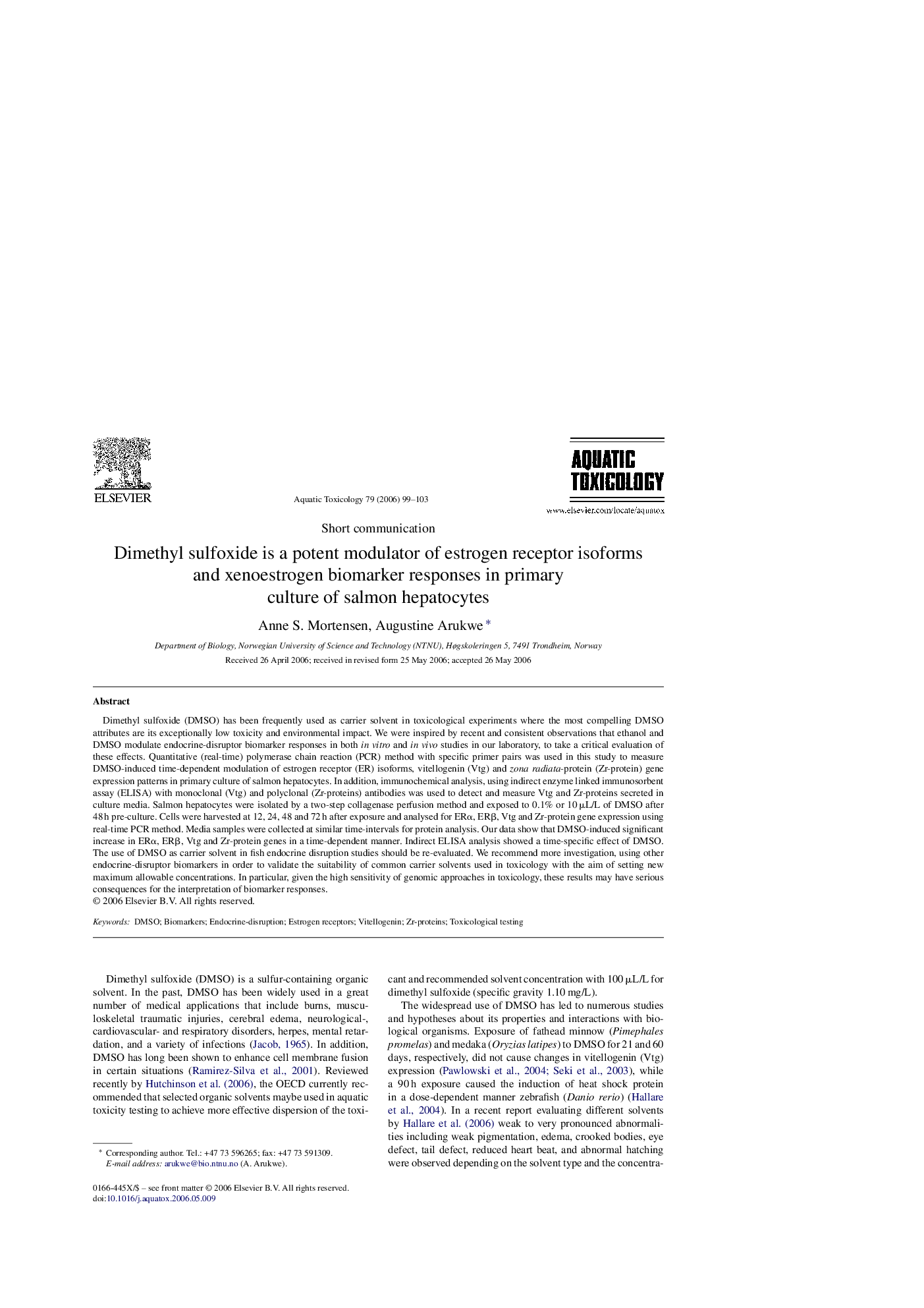| Article ID | Journal | Published Year | Pages | File Type |
|---|---|---|---|---|
| 4531384 | Aquatic Toxicology | 2006 | 5 Pages |
Dimethyl sulfoxide (DMSO) has been frequently used as carrier solvent in toxicological experiments where the most compelling DMSO attributes are its exceptionally low toxicity and environmental impact. We were inspired by recent and consistent observations that ethanol and DMSO modulate endocrine-disruptor biomarker responses in both in vitro and in vivo studies in our laboratory, to take a critical evaluation of these effects. Quantitative (real-time) polymerase chain reaction (PCR) method with specific primer pairs was used in this study to measure DMSO-induced time-dependent modulation of estrogen receptor (ER) isoforms, vitellogenin (Vtg) and zona radiata-protein (Zr-protein) gene expression patterns in primary culture of salmon hepatocytes. In addition, immunochemical analysis, using indirect enzyme linked immunosorbent assay (ELISA) with monoclonal (Vtg) and polyclonal (Zr-proteins) antibodies was used to detect and measure Vtg and Zr-proteins secreted in culture media. Salmon hepatocytes were isolated by a two-step collagenase perfusion method and exposed to 0.1% or 10 μL/L of DMSO after 48 h pre-culture. Cells were harvested at 12, 24, 48 and 72 h after exposure and analysed for ERα, ERβ, Vtg and Zr-protein gene expression using real-time PCR method. Media samples were collected at similar time-intervals for protein analysis. Our data show that DMSO-induced significant increase in ERα, ERβ, Vtg and Zr-protein genes in a time-dependent manner. Indirect ELISA analysis showed a time-specific effect of DMSO. The use of DMSO as carrier solvent in fish endocrine disruption studies should be re-evaluated. We recommend more investigation, using other endocrine-disruptor biomarkers in order to validate the suitability of common carrier solvents used in toxicology with the aim of setting new maximum allowable concentrations. In particular, given the high sensitivity of genomic approaches in toxicology, these results may have serious consequences for the interpretation of biomarker responses.
